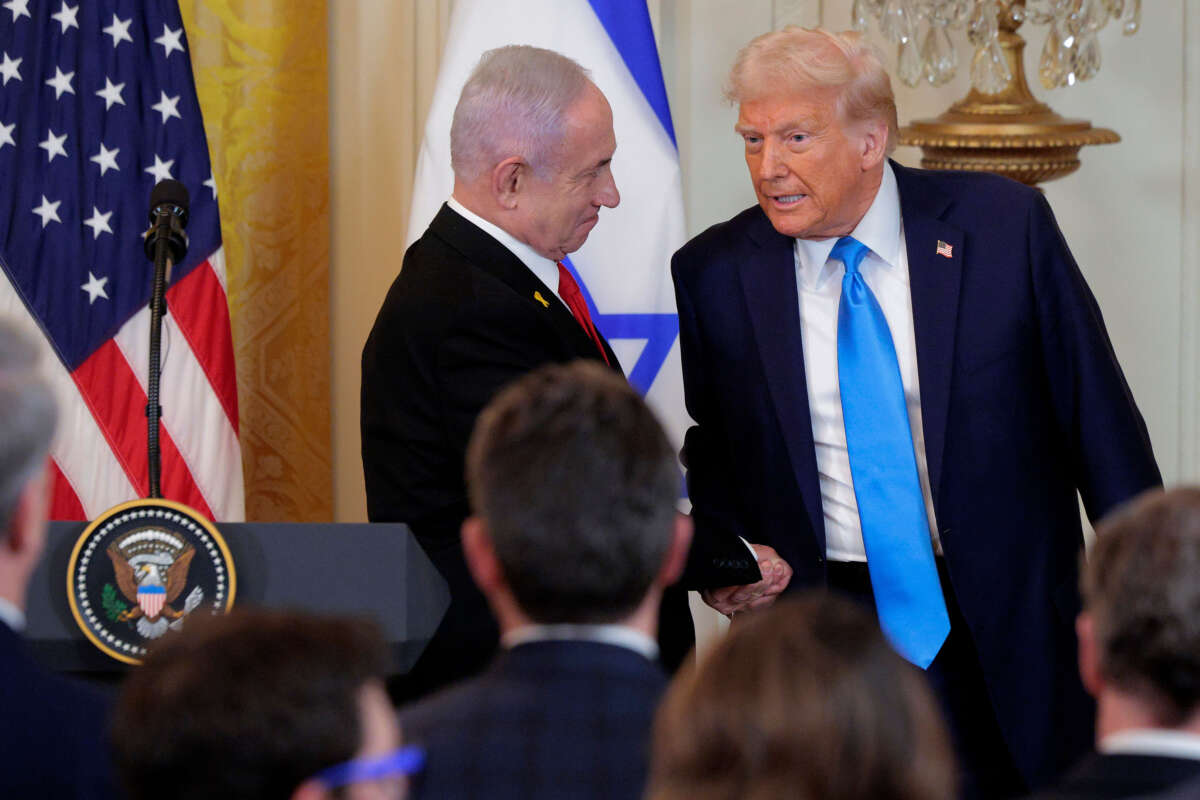President Donald Trump issued a threat for Iran to be “obliterated” this week as his administration imposed sanctions on Iranian oil-affiliated groups and individuals as part of his supposed campaign of “maximum pressure” on the country.
Trump told reporters on Tuesday that, if he were assassinated by Iran, he has instructed his administration to attack the country.
“I’ve left instructions if they do it, they get obliterated, there won’t be anything left,” he said. “Biden should have said that, but he never did.”
The president made this threat — which is not actionable, as he would no longer be president — as he signed an executive order to apply pressure to Iran, calling for “maximum economic pressure” on the country, including sanctions. It also calls for a deal preventing Iran from obtaining a nuclear weapon — six years after Trump pulled out of the Iran nuclear deal that had placed limits on the country’s nuclear program.
Notably, though the executive order frames Trump’s plan as a way to “restore” pressure against Iran, President Joe Biden had been just as hawkish against Tehran. Biden issued hundreds of sanctions on Iran and affiliated groups in his term, including sanctions issued just weeks before the Democrat left office.
Democrats have also consistently struck an aggressive tone in public statements regarding Iran; Vice President Kamala Harris said last year that Iran is the U.S.’s “greatest adversary,” while House Minority Leader Hakeem Jeffries vowed to apply pressure “until Iran is brought to its knees” just last week, as Trump’s team was setting out to dismantle the federal government.
On Thursday, the Treasury Department announced that it is issuing yet more sanctions against Iran as part of the supposed “maximum pressure” campaign, which calls for sanctions to “drive Iran’s oil exports to zero.” The sanctions are against an oil shipping company, Sepehr Energy, as well as individuals and entities in China, India and the United Arab Emirates that the administration says are affiliated with Iran.
The administration claims that Iran’s oil shipments “fund the development of its nuclear program” and characterized the oil exports as “illicit,” though it’s unclear what unlawful actions have been taken.
As his administration targets Iran, however, Trump appears reluctant to take actions that are too strong, likely for fear of hurting his chances at a nuclear deal.
As he signed the order, Trump told reporters that he’s “torn about” the order.
“Everyone wants me to sign it,” he said, adding that he’s “unhappy” about signing it. “I hope that it’s not going to have to be used in any great measure at all.”
Decades of sanctions on Iran, imposed by every presidential administration since George W. Bush and for decades beforehand, have helped to erode Iran’s economy, aiding in driving economic turmoil, hurting basic services like health care, and helping to suppress the Iranian working class.
Our most important fundraising appeal of the year
December is the most critical time of year for Truthout, because our nonprofit news is funded almost entirely by individual donations from readers like you. So before you navigate away, we ask that you take just a second to support Truthout with a tax-deductible donation.
This year is a little different. We are up against a far-reaching, wide-scale attack on press freedom coming from the Trump administration. 2025 was a year of frightening censorship, news industry corporate consolidation, and worsening financial conditions for progressive nonprofits across the board.
We can only resist Trump’s agenda by cultivating a strong base of support. The right-wing mediasphere is funded comfortably by billionaire owners and venture capitalist philanthropists. At Truthout, we have you.
We’ve set an ambitious target for our year-end campaign — a goal of $250,000 to keep up our fight against authoritarianism in 2026. Please take a meaningful action in this fight: make a one-time or monthly donation to Truthout before December 31. If you have the means, please dig deep.
